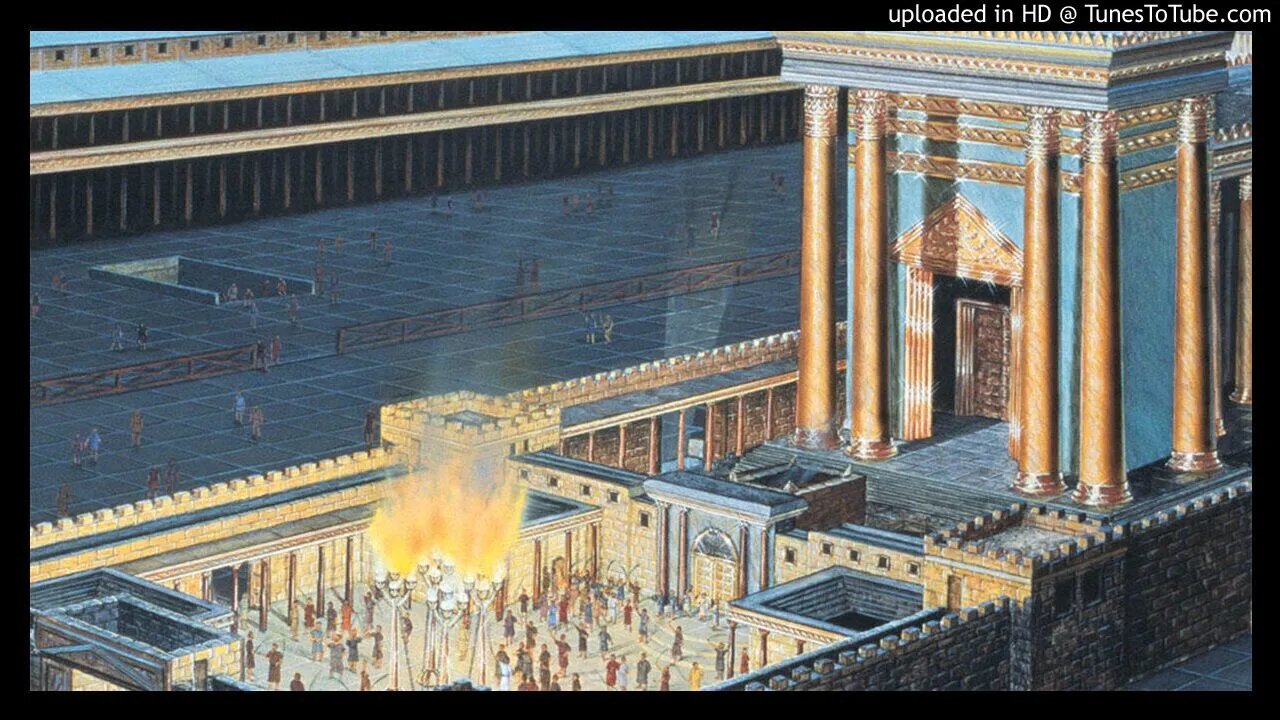Premium Only Content

Feast of Tabernacles - Ave Maria Hour
Sukkot commonly called the Feast of Tabernacles or in some translations the Festival of Shelters,[5] and known also as the Feast of Ingathering is a biblical Jewish holiday celebrated on the 15th day of the seventh month, Tishrei (varies from late September to late October). During the existence of the Jerusalem Temple, it was one of the Three Pilgrimage Festivals on which the Israelites were commanded to perform a pilgrimage to the Temple.
The names used in the Torah are Chag HaAsif, translated to "Festival of Ingathering" or "Harvest Festival", and Chag HaSukkot, translated to "Festival of Booths".[6] This corresponds to the double significance of Sukkot. The one mentioned in the Book of Exodus is agricultural in nature—"Festival of Ingathering at the year's end" (Exodus 34:22)—and marks the end of the harvest time and thus of the agricultural year in the Land of Israel. The more elaborate religious significance from the Book of Leviticus is that of commemorating the Exodus and the dependence of the People of Israel on the will of God (Leviticus 23:42–43).
The holiday lasts seven days in the Land of Israel and eight in the diaspora. The first day (and second day in the diaspora) is a Shabbat-like holiday when work is forbidden. This is followed by intermediate days called Chol Hamoed, when certain work is permitted. The festival is closed with another Shabbat-like holiday called Shemini Atzeret (one day in the Land of Israel, two days in the diaspora, where the second day is called Simchat Torah). Shemini Atzeret coincides with the eighth day of Sukkot outside the Land of Israel.
The Hebrew word sukkōt is the plural of sukkah, "booth" or "tabernacle", which is a walled structure covered with s'chach (plant material, such as overgrowth or palm leaves). A sukkah is the name of the temporary dwelling in which farmers would live during harvesting, a fact connecting to the agricultural significance of the holiday stressed by the Book of Exodus. As stated in Leviticus, it is also intended as a reminiscence of the type of fragile dwellings in which the Israelites dwelt during their 40 years of travel in the desert after the Exodus from slavery in Egypt. Throughout the holiday, meals are eaten inside the sukkah and many people sleep there as well.
On each day of the holiday it is mandatory to perform a waving ceremony with the Four Species.
-
 18:12:15
18:12:15
Chesterton Radio
1 year ago $4.02 earnedElfland Radio - Mystery Drama Adventure All-Day Live Stream
45.9K5 -
 LIVE
LIVE
RalliedLIVE
3 hours ago $2.41 earnedHIGH OCTANE WARZONE SOLOS ALL DAY
2,858 watching -
 2:41:18
2:41:18
Barry Cunningham
3 hours agoIT IS UPON US! PRESIDENT TRUMP IS BRINGING A FIERCE STORM TO WASHINGTON, DC!
32.9K53 -
 12:23
12:23
Exploring With Nug
20 hours ago $1.75 earnedSUV Found In Private Pond While Searching For Missing Man!
7.75K1 -
 53:57
53:57
Tactical Advisor
4 hours agoUnboxing New Guns and Mystery Box | Vault Room Live Stream 033
32.8K5 -
 LIVE
LIVE
Mally_Mouse
1 hour agoSpicy Saturday!! - Let's Play: Chained Together
128 watching -
 1:15:16
1:15:16
Jeff Ahern
6 hours ago $7.66 earnedThe Saturday Show with Jeff Ahern
33.2K7 -
 LIVE
LIVE
a12cat34dog
3 hours agoELIMINATING ALL CRIME :: RoboCop: Unfinished Business :: FINISHING THE DLC {18+}
116 watching -
 1:38:52
1:38:52
Michael Franzese
19 hours agoEpstein. Diddy. Coverups. What the Government Isn’t Telling You
73.5K171 -
 LIVE
LIVE
SilverFox
5 hours ago🔴LIVE - Elden Ring - Stream Doesn't End Until We Beat The Game
81 watching